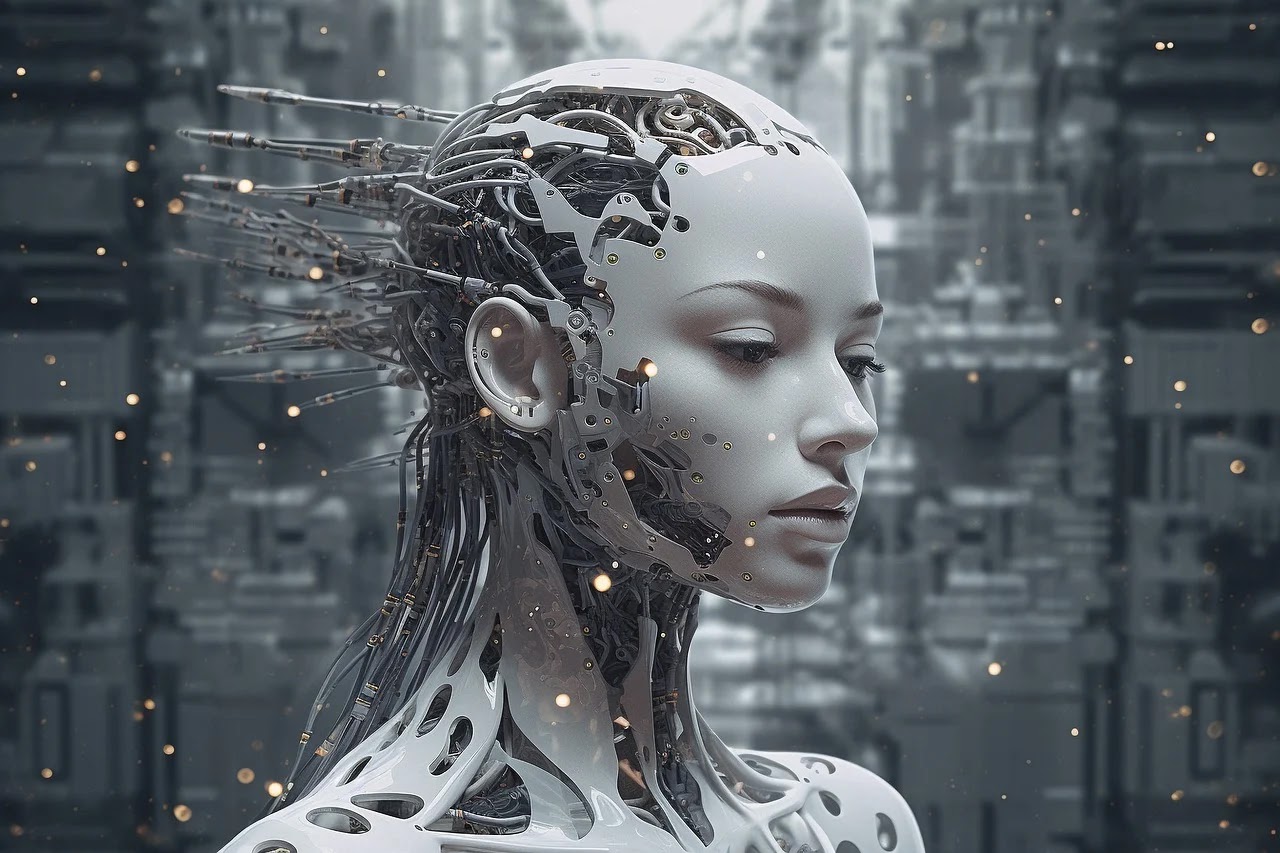Introduction
Artificial
Intelligence has revolutionized our lives in different ways such increasing
efficiency of our daily routines matters in industries health department
knowledge and many other ways. As we can see that there are lots of
advancements are happening in AI which has created many potential risks of artificial
intelligence to the society. In this article we will discuss different dimensions of these risks
such as ethical dilemmas, biases, job displacement, cyber security threats, and
the impact on privacy. By understanding these points we can address these
challenges and we can utilize full benefits of AI while protecting and
safeguarding the interest of well-beings of society.
EthicalDilemmas and Accountability
As the Ai
Systems are becoming more and more complex and powerful ethical dilemmas
surrounding their decision-making capabilities arise. The lack of transparency
and explain ability in AI algorithms raises questions about accountability.
When AI systems make critical decisions that impact individuals or society, it
becomes crucial to ensure that these decisions are fair, unbiased, and aligned
with human values. Striking the right balance between autonomy and human
control is a significant challenge. The potential for AI to make decisions
without human intervention poses dilemmas related to moral and legal
responsibility. It is imperative to develop robust frameworks and regulations
that ensure ethical behavior and accountability in AI systems.
Biases and Discrimination
One of the
major potential risks
of artificial intelligence to the society is. AI systems are trained on vast amounts of data, and
if that data contains inherent biases, the algorithms can perpetuate those
biases. This raises concerns regarding fairness and equal treatment in critical
domains such as criminal justice, employment, and loan approvals. For example,
facial recognition systems have been found to exhibit higher error rates for
women and people of color, leading to potential discrimination. Addressing
biases and ensuring fairness in AI algorithms requires diverse and
representative training data, rigorous testing, and ongoing evaluation of
system outputs. Ethical considerations must be prioritized to prevent the
amplification of existing social inequalities.
Job Displacement and Workforce Transition
The potential risk of artificial
intelligence to the society is to disrupt job markets and displace certain roles, requiring workers
to adapt to new skill sets. While AI can create new job opportunities, the
transition may be challenging for some individuals and communities. Sectors
like manufacturing, transportation, and customer service are particularly
susceptible to automation. This displacement can lead to unemployment and
socioeconomic inequalities if proper measures are not in place. Preparing the
workforce for this transformation through reskilling and up skilling programs,
providing support for affected individuals, and ensuring a just transition are
crucial steps to mitigate potential social and economic disruptions.
Collaboration between governments, businesses, and educational institutions is
key to navigating this shift successfully.
Cyber security Threats
The
proliferation of AI technology can bring potential risks of artificial intelligence to the society. Malicious actors can exploit
vulnerabilities in AI systems to launch sophisticated attacks. Adversarial
attacks, where inputs are specifically designed to deceive AI models, can have
severe consequences. For instance, autonomous vehicles' object recognition
systems could be manipulated to misinterpret road signs, leading to accidents.
Additionally, AI-powered systems can be targeted for data breaches or
unauthorized access, compromising sensitive information and privacy. Protecting
AI systems from cyber threats requires robust security measures, continuous
monitoring, and ongoing research to stay ahead of potential vulnerabilities.
Collaboration between cyber security experts and AI developers is essential to
fortify AI systems against malicious attacks.
Impact on Privacy
The
widespread adoption of AI raises concerns about the protection of personal
privacy. AI technologies often require vast amounts of data to train models and
make accurate predictions. This data may include personal information, posing
risks to individual privacy if not handled responsibly. There is a need to
establish clear regulations and guidelines to ensure that data collection,
storage, and usage practices adhere to strict privacy standards. Implementing
privacy-preserving techniques such as differential privacy, data anonymization,
and secure data-sharing protocols can help strike a balance between the
benefits of AI and individual privacy rights.
Conclusion
As society
embraces the power of AI, it is essential to recognize and mitigate the potential risks of artificial
intelligence to the society. Addressing ethical dilemmas, biases, job displacement, cyber security
threats, and privacy concerns requires collaborative efforts between
policymakers, researchers, industry leaders, and the public. By establishing
robust regulations, promoting transparency, fostering ethical practices, and
investing in measures to protect against potential risks, we can navigate the
path towards an AI-powered future that benefits society as a whole.
Safeguarding the interests and well-being of individuals and communities should
be the driving force behind the development and deployment of artificial
intelligence.







0 Comments